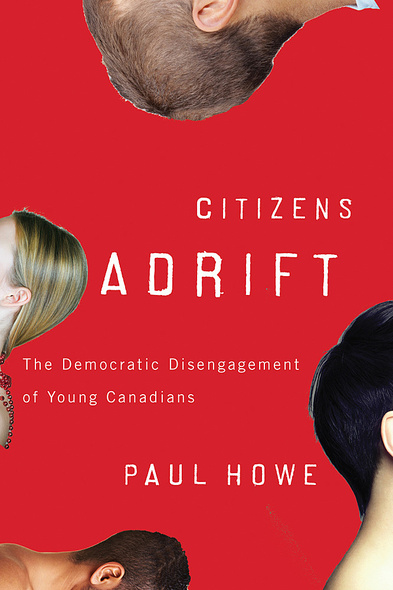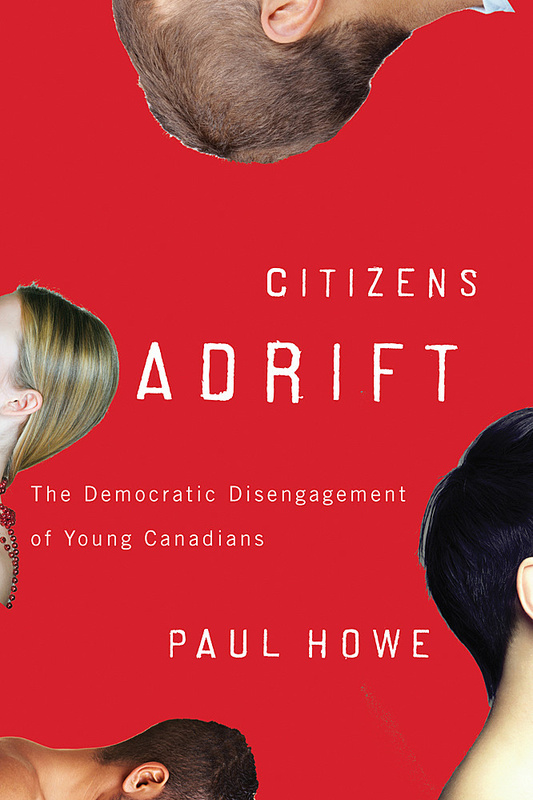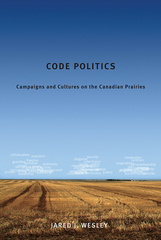
Many political observers, struck by low turnout rates among young voters, are pessimistic about the future of democracy in Canada and other Western nations. Citizens in general are disengaged from politics, and young people in particular are said to be adrift in a sea of apathy. Others have questioned this bleak assessment, arguing that youth engagement has shifted to newer forms of political and community involvement.
In Citizens Adrift, Paul Howe examines past and present patterns of political and civic engagement and concludes that many young Canadians are, in fact, deeply detached from the public realm. Two trends underlie his findings: waning political knowledge and attentiveness and generational changes in the norms and values that help sustain social integration. Citizens Adrift shows that, in order to devise policy initiatives that put young people back on the path towards engaged citizenship, we must acknowledge that democratic engagement extends beyond the realm of formal politics.
By linking political engagement to broader social and cultural changes, Citizens Adrift maps out a holistic approach to the problem of democratic disengagement, one with broad applicability across the Western democracies.
This book will greatly enhance the understanding of students and policy-makers interested in voting and elections, Canadian politics, democratic disengagement, and civic involvement.
Awards
- 2011, Winner - Donald Smiley Prize, Canadian Political Science Association
In his recent book, Citizens Adrift: The Democratic Disengagement of Young Canadians, Paul Howe has managed to do what others have not. He presents a comprehensive and balanced examination of the political (dis)engagement of young Canadians. Howe has avoided the trap of simplistic analyses and conclusions and, instead, offers readers a thorough and considered look at the oft-cited low levels of political interest and participation among Canadian youth. He employs statistical data from a wide variety of sources (including those from Canada, the United States and numerous European countries) and draws upon theories in political science, sociology and psychology in order to approach the subject in a unique way.
In Citizens Adrift, Paul Howe explores a problem that every political scientist in Canada has to be thinking about: Why are younger people less interested in politics than their elders? Howe comes to the topic with an open mind, an infectious enthusiasm, and an impressive toolkit. Drawing on the research of others, generating new data of his own, and comparing Canadian results with similar countries, he examines the issue of disengagement from a number of fascinating angles. His diagnosis is at once wise, persuasive, and troubling; his prescriptions are realistic and achievable. Citizens Adrift is a model of political science that deserves a place on every scholar’s reference table not just because it is accessible and intelligent, but because it will inform reflection and discussion both in class and, one hopes, on the street.
In his recent book, Citizens Adrift: The Democratic Disengagement of Young Canadians, Paul Howe has managed to do what others have not. He presents a comprehensive and balanced examination of the political (dis)engagement of young Canadians. Howe has avoided the trap of simplistic analyses and conclusions and, instead, offers readers a thorough and considered look at the oft-cited low levels of political interest and participation among Canadian youth. He employs statistical data from a wide variety of sources (including those from Canada, the United States and numerous European countries) and draws upon theories in political science, sociology and psychology in order to approach the subject in a unique way.
Citizens Adrift is well researched and nicely written, demonstrating with clear, understandable figures just how large the gap between generations of Canadians is. More succinctly than most books that identify the problem of youthful disengagement, Paul Howe’s suggests realistic solutions.
Citizens Adrift is certain to draw considerable attention as it makes a compelling contribution to the discussion of the health of Canadian democracy. In his discussion of social integration, Howe advances some particularly novel ideas.
Introduction
Part 1: Setting the Stage
1 Democratic Participation in Canada
2 The Wellsprings of Disengagement
Part 2: Political Attentiveness
3 The Evolution of Political Attentiveness: A Six-Country Comparison
4 Political Attentiveness in Canada: The Current Landscape
5 Political Knowledge and Canadian Democracy
Part 3: Social Integration
6 Community Attachments
7 Ascendant Individualism
8 Social Integration and Political Engagement
Part 4: Looking Back, Looking Forward
9 Political Culture in the Age of Adolescence
10 Engendering Engagement among Young Canadians: A Holistic Approach
Appendices
Notes
Works Cited
Data References
Index





